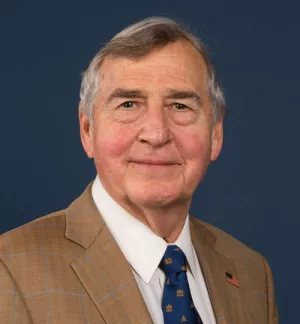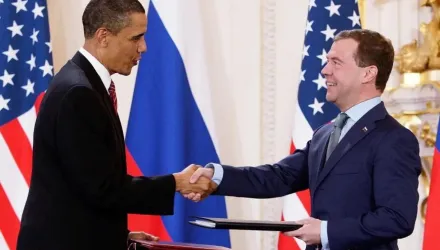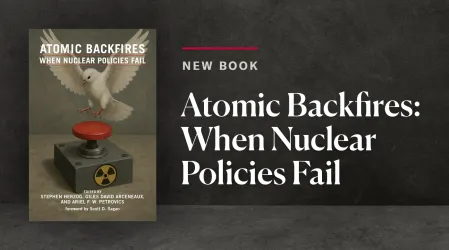The summit meeting of the Group of Eight leaders was declared a success by the White House, as measured by its own yardsticks. In a week that began with a UN Security Council resolution endorsing the transfer of sovereignty to the new Iraqi leadership, the G-8 meeting gave an impression of solidarity and seriousness as leaders addressed the world's most important challenges.
The image of Ronald Reagan overshadowed the event. As president, Reagan identified his overriding challenge as preventing nuclear war. In his oft-quoted one-liner: "A nuclear war cannot be won and must therefore never be fought." Following that insight, he pursued a strategy for victory in the cold war without the nuclear war of which Americans would have been among the first victims.
At their meeting two years ago in Canada, the G-8 leaders identified the post-cold war equivalent of Reagan's specter, declaring the nexus of terrorism and weapons of mass destruction "the pre-eminent threat to international security." To combat this threat, they established a "Global Partnership Against the Spread of Weapons of Mass Destruction." Other G-8 members pledged $1 billion a year over the next decade to match U.S. commitments to secure nuclear weapons and materials in Russia. At their summit meeting last year in France, the G-8 nations reaffirmed this pledge and announced an action plan to move the effort forward.
At Sea Island, Georgia, the leaders unveiled a new initiative to freeze for one year transfers of enrichment and reprocessing technology to Iran, but they ducked the issue of measures of their performance in fulfilling pledges made in the previous two years. The press compliantly accepted its assigned role as Greek chorus, reporting what the leaders said without comparing rhetoric to real action. Had they done so, their report card on the G-8 would show poor performance:
*Fewer former Soviet "near-nukes" -- lumps of highly enriched uranium and plutonium from which a terrorist could make a nuclear weapon -- have been secured in the two years since Sept. 11, 2001, than in the two years before that date.
*Only one-fifth of Russia's weapons-usable fissile material has been adequately secured.
*Of Russia's fissile material stockpile, 57 percent -- enough for more than 20,000 nuclear weapons -- has not received the most basic security upgrades.
*Hundreds of potential nuclear weapons of highly enriched uranium will remain at risk in developing and transitional countries for the next 10 years.
Responsible leaders who actually believed that a threat was "pre-eminent" would move on the fastest technically feasible timetable to combat it. In contrast, the actions taken by G-8 nations since announcing their global partnership two years ago have been lackadaisical and unfocused.
Two measures of urgency -- money and personal presidential attention -- demonstrate this worrisome reality. The 2002 global partnership pledged $20 billion over 10 years, one half from the United States, the other half from other members. That amounts to $2 billion per year from countries that produce 70 percent of the world's gross domestic product. Even by that standard, the global partnership has yet to reach its goal of $20 billion in pledges, and has spent less than half a billion, excluding the existing U.S. programs. Compare this with the more than $100 billion that the United States has spent on Iraq in the past year.
The absence of direct personal involvement by Presidents George W. Bush and Vladimir Putin and other G-8 leaders belies any sense of priority. Not one of these men has sent a lightning bolt through his own bureaucracy or actively engaged his counterparts to resolve bureaucratic logjams.
In 2000, for instance, the United States and Russia signed an agreement to remove the threat of 68 tons of Russian weapons-grade plutonium. In the three years since the agreement, how many tons have been destroyed? Zero. Liability and access disputes continue to hold up the project, and less than half of the $2 billion required to do the job has been pledged.
At the current rate, the global partnership will not secure Russia's loose nukes until 2017. If the material for the terrorist bomb that blows up in Paris or Moscow or New Yorkin 2005 is scheduled to be secured in 2008, voters will look back at the elegant language of multiple G-8 summit meetings and wonder why it was so hard to translate those words into action.
Graham Allison is director of the Belfer Center for Science and International Affairs at Harvard University's Kennedy School of Government.
Allison, Graham. “The Eight Spoke Loudly, and Did Little.” International Herald Tribune, June 12, 2004





